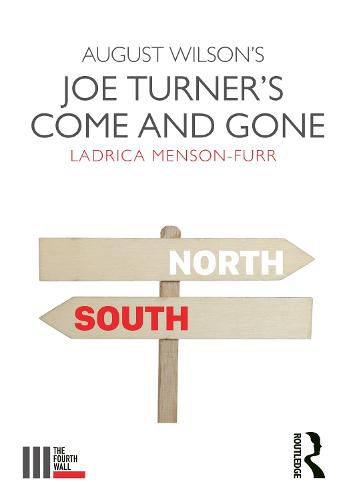Readings Newsletter
Become a Readings Member to make your shopping experience even easier.
Sign in or sign up for free!
You’re not far away from qualifying for FREE standard shipping within Australia
You’ve qualified for FREE standard shipping within Australia
The cart is loading…






Herald Loomis, you shining! You shining like new money! - Bynum Walker
August Wilson considered Joe Turner’s Come and Gone (1984) to be his favourite play of the ten in his award-winning Pittsburgh Cycle. It is a drama that truly examines the roots, crossroads, and intersections of African, American, and African American culture. Its characters and choral griots interweave the intricate tropes of migration from the south to the north, the effects of slavery, black feminism and masculinity, and Wilson’s theme of finding one’s song or identity. This book gives readers an overview of the work from its inception on through its revisions and stagings in regional theatres and on Broadway, exploring its use of African American vernacular genres-blues music, folk songs, folk tales, and dance-and nineteenth-century southern post-Reconstruction history.
Ladrica Menson-Furr presents Joe Turner’s Come and Gone as a historical drama, a blues drama, an American drama, a Great Migration drama, and the finest example of Wilson’s gift for relocating the African American experience in urban southern cities at the beginning and not the end of the African American experience.
$9.00 standard shipping within Australia
FREE standard shipping within Australia for orders over $100.00
Express & International shipping calculated at checkout
Herald Loomis, you shining! You shining like new money! - Bynum Walker
August Wilson considered Joe Turner’s Come and Gone (1984) to be his favourite play of the ten in his award-winning Pittsburgh Cycle. It is a drama that truly examines the roots, crossroads, and intersections of African, American, and African American culture. Its characters and choral griots interweave the intricate tropes of migration from the south to the north, the effects of slavery, black feminism and masculinity, and Wilson’s theme of finding one’s song or identity. This book gives readers an overview of the work from its inception on through its revisions and stagings in regional theatres and on Broadway, exploring its use of African American vernacular genres-blues music, folk songs, folk tales, and dance-and nineteenth-century southern post-Reconstruction history.
Ladrica Menson-Furr presents Joe Turner’s Come and Gone as a historical drama, a blues drama, an American drama, a Great Migration drama, and the finest example of Wilson’s gift for relocating the African American experience in urban southern cities at the beginning and not the end of the African American experience.